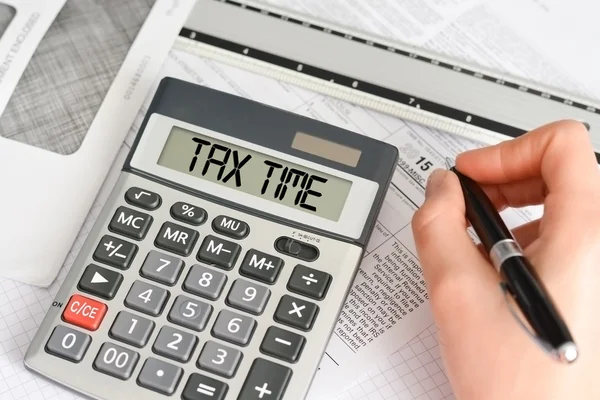Green Economy Opportunities: A Path for Everyday People
The green economy opportunities are no longer a niche concept reserved for environmentalists and large corporations. Instead, these opportunities represent a transformative shift towards sustainable growth, offering everyday people numerous ways to contribute to a greener future. Whether you’re a homeowner, a small business owner, or simply someone eager to make a positive impact, the green economy has something to offer. Embracing green initiatives not only benefits the planet but also enhances your financial well-being and quality of life.
What You Will Learn
In this article, you will explore the vast green economy opportunities available to everyone. Specifically, we’ll uncover practical ways to get involved, the benefits of adopting green practices, and tips to maximize your participation in this sustainable movement. Moreover, we’ll address common questions to help you embrace this shift confidently.
The Rise of Green Economy Opportunities
Understanding the Green Economy
The green economy opportunities encompass economic activities that promote environmental sustainability, reduce carbon footprints, and conserve natural resources. For example, they include sectors like renewable energy, sustainable agriculture, green construction, and eco-friendly transportation. As the world grapples with climate change and environmental degradation, the green economy provides viable solutions that align economic growth with ecological balance.
Learn more about the green economy’s global impact from the United Nations Environment Programme (UNEP).
Economic Benefits for Individuals
Engaging in these opportunities can lead to significant financial savings. For instance, investing in energy-efficient appliances and solar panels can reduce household energy bills. Moreover, green jobs are on the rise, providing new career opportunities in various industries. By embracing green practices, individuals contribute to economic resilience and their financial stability.
Practical Ways to Leverage Green Economy Opportunities
Sustainable Home Improvements
One of the most direct ways to benefit is by making sustainable improvements to your home. For instance, simple actions like installing LED lighting, improving insulation, and using energy-efficient appliances can significantly reduce energy consumption. Furthermore, integrating renewable energy sources, such as solar panels, can amplify your contributions to the green economy while saving on energy costs.
Explore federal incentives for home sustainability upgrades through the U.S. Department of Energy.
Supporting Green Businesses
Choosing to support businesses that prioritize sustainability is another effective strategy. For example, look for products that are eco-friendly, ethically sourced, and produced with minimal environmental impact. By directing your spending toward green businesses, you not only benefit from high-quality, sustainable products but also encourage other companies to adopt environmentally responsible methods.
Investing in Renewable Energy
Renewable energy investments offer both environmental and financial rewards. Whether through direct investment in solar or wind projects or by purchasing stocks in renewable energy companies, individuals can play a role in the transition to cleaner energy sources. Moreover, these investments provide opportunities to support sustainable development while earning attractive returns as the renewable sector grows.
To start investing in renewable energy, visit the Renewable Energy Investing Guide by IRENA.
Benefits of Green Economy Opportunities
Environmental Impact
Participating in the green economy directly contributes to the reduction of greenhouse gas emissions, conservation of natural resources, and preservation of biodiversity. Every small action, from recycling to choosing sustainable transportation, collectively makes a significant difference in combating climate change.
Health and Well-being
Adopting green practices often leads to improved health and well-being. For example, using non-toxic household products reduces exposure to harmful chemicals, while walking or cycling instead of driving promotes physical activity. Additionally, green spaces and sustainable urban planning enhance quality of life by providing cleaner air and more recreational areas.
Economic Savings
Many green initiatives offer long-term cost savings. For instance, energy-efficient homes require less energy, resulting in lower utility bills. Similarly, sustainable transportation options can reduce fuel costs, and renewable energy investments can provide steady income streams through savings or government incentives. Therefore, these financial benefits make green economy opportunities both environmentally and economically rewarding.
Overcoming Common Challenges
Initial Investment Costs
One common barrier is the perceived high initial costs of green solutions. However, many green initiatives come with long-term savings and various incentives. For example, government grants, tax credits, and financing options can help offset upfront expenses, making these investments more accessible.
Lack of Awareness
Another challenge is the lack of awareness about the available green economy opportunities. Therefore, educating yourself through reliable sources, attending workshops, and joining community groups focused on sustainability can enhance your understanding and empower you to make informed decisions.
Frequently Asked Questions
1. What is the green economy?
The green economy refers to economic activities that promote environmental sustainability, reduce carbon emissions, and conserve natural resources. It includes sectors like renewable energy, sustainable agriculture, and green construction.
2. How can I start participating in the green economy?
You can start by making sustainable choices in your daily life, such as using energy-efficient appliances, supporting green businesses, investing in renewable energy, and adopting eco-friendly transportation methods.
3. Are there financial incentives for going green?
Yes, many governments offer incentives like tax credits, grants, and rebates for adopting green technologies and practices. Moreover, energy savings and increased property values can provide long-term financial benefits.
4. Can small businesses benefit from the green economy?
Absolutely. Small businesses can reduce operational costs by implementing energy-efficient practices, attract environmentally conscious customers, and take advantage of green certifications to enhance their market position.
5. What are some examples of green jobs?
Green jobs include roles in renewable energy installation and maintenance, sustainable agriculture, environmental consulting, green building design, and conservation management.
Summary
The green economy opportunities present a wealth of ways for everyday people to contribute to a sustainable future while reaping personal and financial benefits. By making informed choices in your home, supporting green businesses, and investing in renewable energy, you can play a pivotal role in this transformative movement. Furthermore, overcoming initial challenges with education and incentives can empower you to embrace green practices confidently. As we collectively move toward a greener economy, the positive impacts on the environment, health, and economy are undeniable. Start your green journey today and become part of the change for a better tomorrow.






